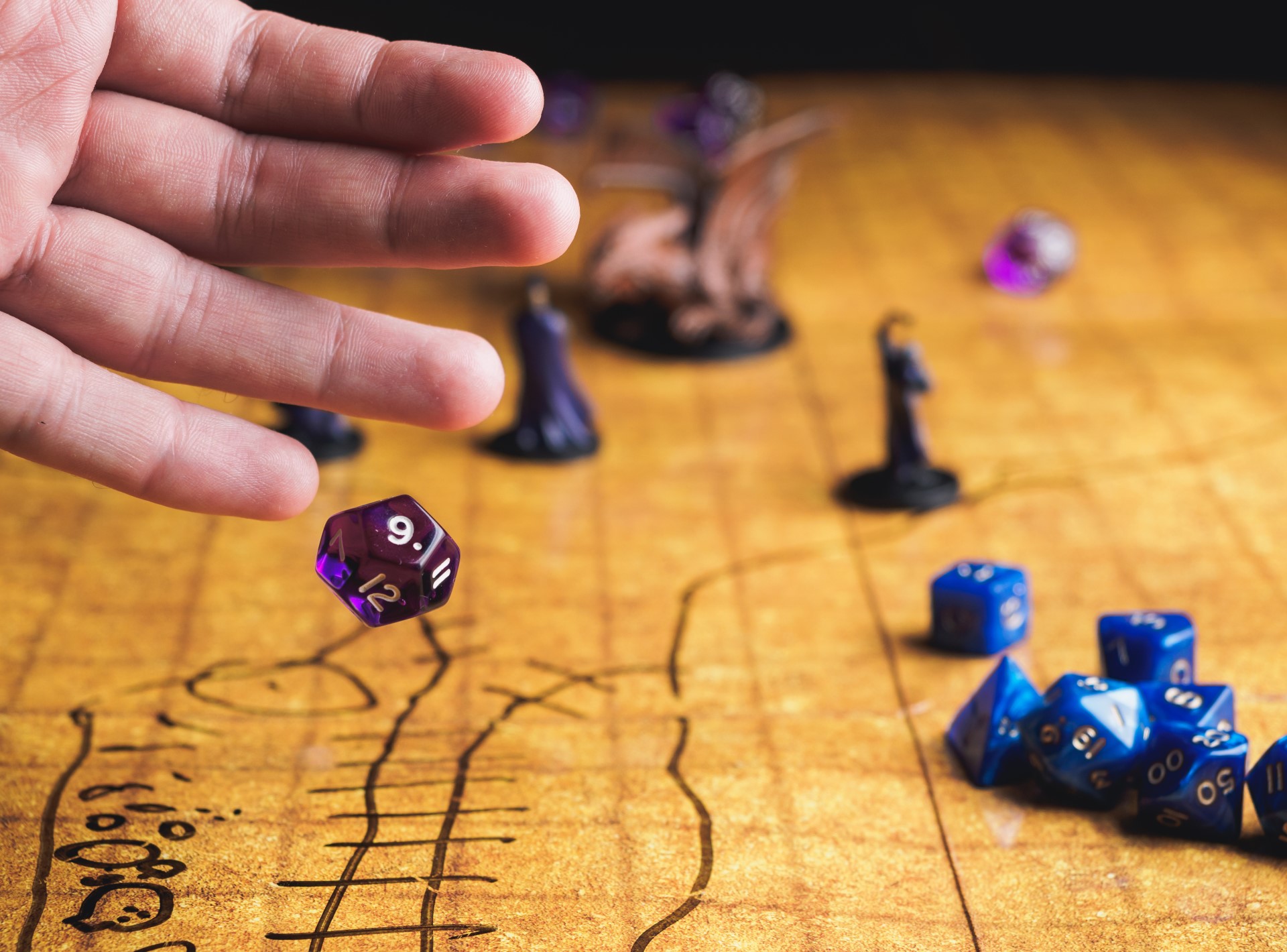University of South Australia researchers are examining tabletop role-playing games (TTRPGs) such as Dungeons and Dragons to help in the social growth of people who are neurodivergent or live with a disability.
When fantasy tabletop role-playing game Dungeons and Dragons featured on Netflix sensation Stranger Things, online searches for the game shot up considerably and the game often associated with geeks and nerds now attracts an estimated 50 million players worldwide.
TTTRPGs are games of imagination, played in an imaginary world using characters created by players and in one of the best known, Dungeons and Dragons, players often meet in-person around a table, or online, to embark on dangerous quests in search of treasure, to battle deadly foes or carry out daring rescues.
One person takes on the role of game master who is responsible for guiding players through the story and is the lead referee. Games can last a couple of hours through to stories spanning years.
A neurodiverse research team was gathered to undertake a scoping review of existing academic literature surrounding the use of TTRPGs to promote social growth in players.
The research is part of a collaboration between UniSA and social gaming company, Minds At Play, to better understand how roleplaying games can boost confidence and self-esteem in players to improve their mental wellbeing.
UniSA gaming expert Dr Susannah Emery explained that the findings of the review show that it’s an under-researched area requiring further investigation.
“We found that the academic literature in this area focused on the use of TTRPGs by therapists as a way to engage their clients, but there is very little data in regard to players sharing their own experiences with these role-playing games and we believe this is a critical missing voice,” she said.
“There is a significant opportunity for further research to be pursued and the area to be more deeply investigated.”
Minds At Play, one of the leading social gaming companies in Australia that runs online TTRPG sessions, has seen the benefits firsthand, running online TTRPG sessions that provide a safe environment for neurodiverse players to have positive social experiences, and UniSA partnered with the organisation in 2022 to better understand how TTRPGs can help build social skills.
Minds At Play Ambassador, Mr Dwayne Fernandes, said he has observed the impact TTRPGs such as Dungeons and Dragons have on promoting social growth in players.
“My godchild has autism and I wondered if D&D would help give him the tools to engage in social situations while playing a game. I did some research and found there’s lots of benefits of playing D&D for people with autism,” Mr Fernades told the NDIS.
According to Minds at Play, their gaming sessions aim to offer a safe environment in which players can have a positive social experience, while playing a well-established social and fantasy-based game involving role playing and self-awareness.
Local psychologist, Dr Chris Howard (D.Psych), from Mindarie Mind and Body, is currently completing a 36-hour therapeutic game-master course, a training program run out of the US that helps clinicians interested in enhancing their skills at running groups for tabletop roleplaying – specifically Dungeons and Dragons.
“That’s a recognised course in the in the US for psychologist and therapist training,” he explained.
“It’s effectively a cooperative and social group therapy couched in terms of a fun, immersive game experience. When you put aside the computers and the electronic devices, we have the players handbooks and we have character sheets and they just really encourage kids, young adults, and even adults for that matter, to get really immersed in the activity.
“We use role playing therapy as a method for helping people and this is fun way to engage in that process, to explore various aspects of your own personality and test out social consequences safely.
“There are learning opportunities for people to get immersed in playing a role in the game that will enable them to take risks – they’re getting to take social risks safely: ‘I wouldn’t behave like this, I wouldn’t express myself like this normally, I wouldn’t talk openly, and I wouldn’t be doing these things. But I’m playing a role here, and this is great.’”
Dr Howard explained that in Australia there were several pathways for accessing CBT in a group format using D&D.
“Obviously, there are individual sessions available, but you can also do group sessions under a mental health treatment plan which can be discussed during your referral process. Providing CBT in that group format is eligible for Medicare rebates,” he said.
“The other pathway is through the NDIS, which is more suited for those Neurodiverse people that have a disability plan. This includes things like social goals, communication goals, or addressing anxieties, and depending on the person’s plan, they could be eligible under the NDIS to effectively access D&D group therapy.”
Perth GPs who may have patients they think could benefit from roleplay therapy can contact Dr Chris Howard for more information on upcoming gaming sessions for specific age groups at drchrishoward6030@gmail.com.


